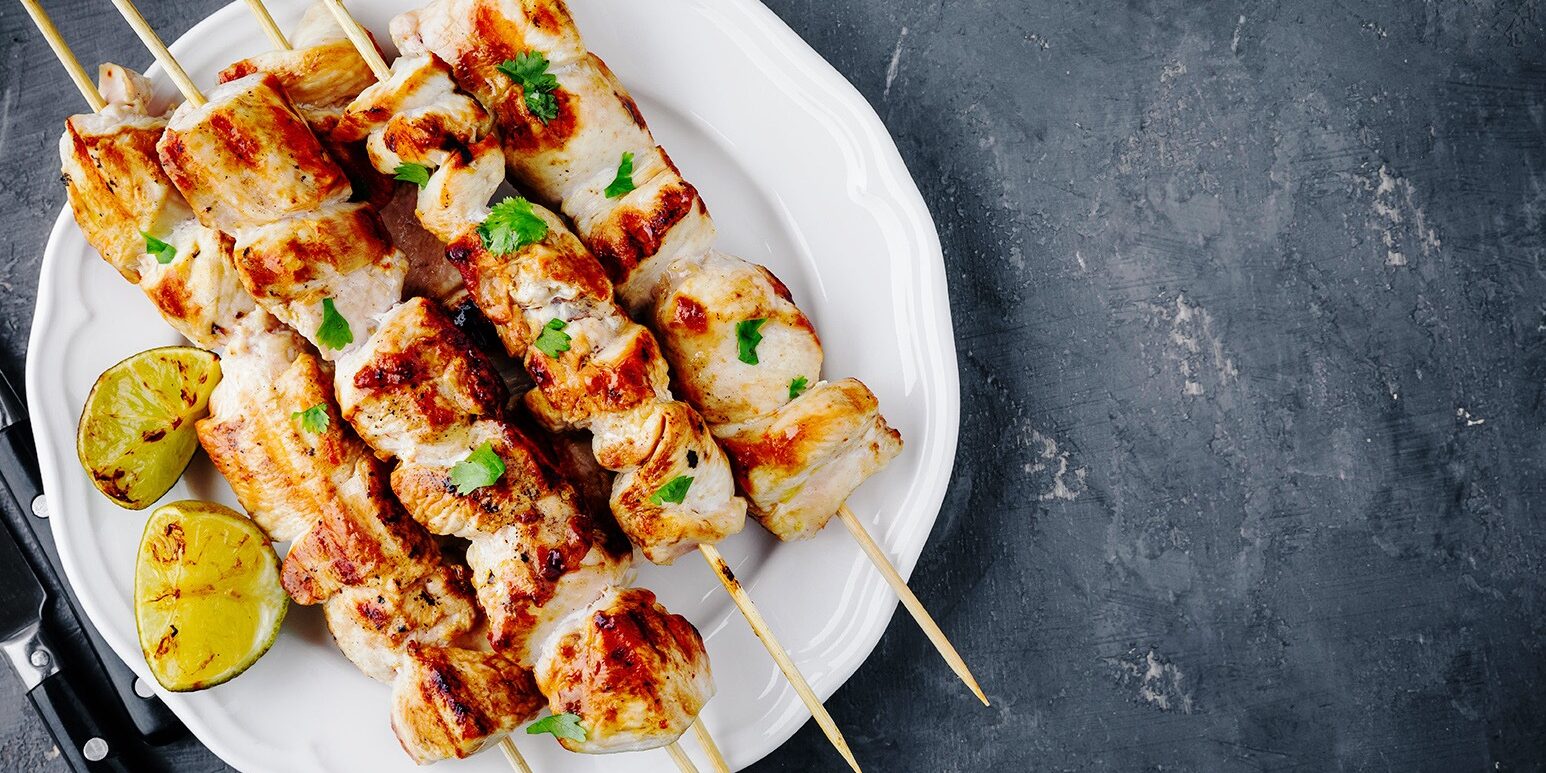Nothing says summer like the smell of food cooking outdoors. Using an outdoor grill is great because it gets us out of the kitchen and closer to nature – what could be better? Cooking on a grill has the benefit of being a low-fat cooking method that adds a natural smokey flavor to foods and requires minimal clean-up.
Although grilling can be an easy way to prepare a delicious meal there are some health risks to be aware of. One health concern related to grilling stems from chemical changes that can occur in meats when exposed to high heat. When meat, poultry, pork, or fish are cooked over flames or at a very high temperature the muscle proteins form compounds called heterocyclic amines, which have been shown to cause DNA damage in cells that can lead to certain cancers. Other cancer-causing chemicals called polycyclic aromatic hydrocarbons can attach to food as fat from meat drips down onto hot coals and creates smoke. Another health issue to keep in mind when planning your BBQ menu relates to consuming processed meats such as hot dogs and sausages, which are also associated with increased risk of certain cancers. You can reduce these risks by choosing leaner cuts of meat most often, trimming away excess fat or poultry skin, cooking at a lower temperature, flipping frequently to reduce charring, and marinating meats at least 30 minutes prior to cooking.
Food safety is another important risk to be mindful of as food-born illness spikes in warmer months. Food poisoning can occur when consuming undercooked animal meats, including fish, or from cross contamination of cooked and raw foods, and the risk increases the longer foods remain outside, allowing bacteria time to grow. Generally, poultry and ground meats should be cooked to 165 degrees while 145 degrees is adequate for steak and seafood. A good rule of thumb for food left out is not more than 2 hours unless kept warm above 140 degrees or colder than 40 degrees. Bacteria that exist on food can reproduce rapidly at room temperature and even more so at outdoor temperatures in the summer.
Make the most of cooking on the grill by including vegetables and fruit to balance your meal and add important antioxidants to help counteract potential negative effects of chemical exposures. Prepare extra to have on hand for future meals or snacks. Some great options are bell peppers, zucchini, eggplant, portobello mushrooms, onions, and even heads of romaine lettuce. Peaches and pineapple are especially delicious when grilled and can be enjoyed in a variety of ways. Try it as a topping for grilled fish or chicken, over yogurt, or in a salad.
A fun way to create a balanced meal is to thread your meats and veggies (and fruits!) onto skewers to create colorful kabobs. Another cooking method that is quick and easy is to place your protein and veggies inside a foil pouch. This works particularly well with flakey fish, which can be too delicate to place directly on the grill.
Key Grilling Tips:
- Choose lean proteins most often
- Marinate meats prior to cooking
- Minimize meat exposure to flames
- Use a thermometer to test for doneness
- Keep raw and cooked foods separated
- Avoid letting food sit out for more than two hours
- Include vegetables and fruits
Sources:
https://www.webmd.com/women/safe-grilling
Helaine Krasner, MS, RDN, CSOWM, CDN is a registered dietitian nutritionist who takes great pride in helping our Bariatric and Medical Weight Management patients achieve their health and weight loss goals.

